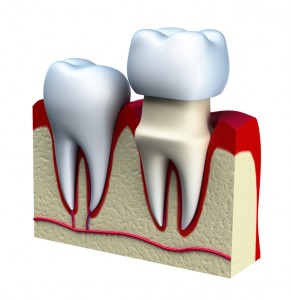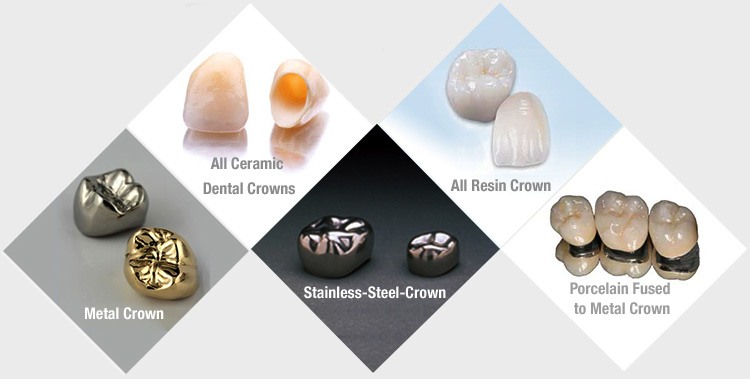
Dental caps fit over a damaged tooth, covering the whole outer surface of the tooth and creating a new outer layer where the enamel would normally be.
Dental caps make for an effective way to restore severely damaged teeth. Because dentists try to preserve as much natural dental tissues as possible, having a tooth capped is usually recommended before having it extracted, this is because a tooth that has been capped will often last many years longer even if the cap was placed to restore extensive damage.
How Do Dental Caps Work?
Dental caps fit over a damaged tooth, covering the whole outer surface of the tooth and creating a new outer layer where the enamel would normally be. The natural tooth that still remains under the cap, will still be damaged, but the cap protects any fillings and other dental work together with the remaining tooth from further damage while also allowing the patient to use the damaged tooth without experiencing any pain or discomfort.
In many cases, teeth become too damaged to effectively hold a filling. When this happens, a placed filling might keep falling out as soon as it’s placed and in other cases dentists might not even try placing a filling, knowing that it would be a futile attempt. But luckily, in most such cases, caps are still a viable way to restore damage to such teeth.
Dental Cap Materials

Dental caps can be made from a wide range of different materials: Metal Alloys, Porcelain, Porcelain Fused to Metal and Resin
Dental caps can be made from a wide range of different materials. A patient’s choice will depend on factors like price, appearance, durability and their dentist’s recommendations. Every material offers its own set of benefits and drawbacks.
Metal Alloys
Metals such as gold, chromium or a durable dental alloy are a common choice for making dental caps. Dental alloys are a mix of various metals such as silver, gold, copper, zinc and chromium, to name a few, but they can even contain small amounts of silicone or other elements. Many of the metals used in dental alloys are naturally present in the body, so they’re definitely safe to use. The main concern with caps made of metal is that they’re usually either silver or gold in color, causing a tooth with a metal cap to be an obvious mismatch. Other than that, metal teeth caps are very durable and a good option when the tooth that needs to be restored is a molar.
Porcelain
Porcelain isn’t as durable as metal for making dental caps, but the color can match surrounding teeth. This makes it a good option if you’re concerned about having a metal cap placed on a tooth when it would be very obvious. Porcelain caps can also cause more wear on surrounding teeth, making them a somewhat less attractive alternative in many cases.
Porcelain Fused to Metal
This is a reasonably good option for patients who want to get the best of both worlds when it comes to a dental cap. The porcelain may still cause some wear on surrounding teeth, but a cap that has an outer layer of porcelain with an inner layer of metal, will usually be rather more durable than one that’s made of metal only.
Resin
While resin isn’t the most durable material for making a dental cap, they do offer some benefits. Resin tends to be much cheaper than other options and can suite the color of surrounding teeth better than metal. The downside is that resin will wear and break more than metal or a combination of metal and porcelain.
What Do Dental Caps Cost?

Dr. Stone has been practicing cosmetic dentistry in Ft. Lauderdale since 1979. His success as a cosmetic dentist is based on years of advanced dental education culminating in a specialty degree in Prosthodontics and over 30 years of practical experience.
Like with many other dental procedures, it’s hard to give an exact price for what capping a tooth would cost. Depending on procedures such as root canals, X-rays and other dental work, the price that every patient pays will be different, but the cap itself usually costs between $1100 and $1500. When including other dental work in the price, having a tooth capped can cost anywhere from $2000 to $4000.
The best way to know whether or not having a tooth capped would be a good option for you, would be to visit your dentist for a consultation. If you’re looking for a dentist to cap your teeth in Fort Lauderdale, Dr. Stone is a would be an excellent choice. Dr. Stone has more than thirty years of experience and specializes in the restoration and replacement of teeth.


